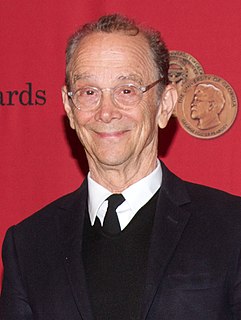Top 90 Quotes & Sayings by Joel Grey
Explore popular quotes and sayings by an American actor Joel Grey.
Last updated on April 14, 2025.
I had begun my professional career when I was 9 years old at the Cleveland Play House, and it was a very specific, real theater sort of like, you know, in England and the Berliner Ensemble - very devoted people. And I thought the theater was the greatest place I had ever been, and that's what I wanted to do.
After my bar mitzvah, I started to assimilate, to really not pay attention to my roots. The anti-Semitic experiences of my youth had been very painful. You try to put all that in the past and become a person of the world. I think that's the right thing to do. But it's not right to leave out who you really are. That's a tragedy.




















